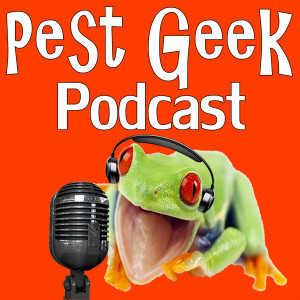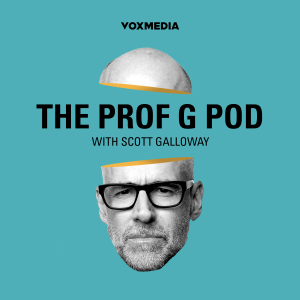

The Pest Geek Podcast Worlds #1 Pest Control Training Podcast
http://pestgeekpodcast.com/feed/podcastEpisode List

Adding lawn care to your pest control business
A question was asked and a pest control group. We are adding a lawn spraying weed fertilization ration insects beginning in January to our core of termite pest and mosquito summer recommending starting a separate LLC for that for different reasons. Has anyone had this experience any suggestion? thanks I was tagged in this post and I think I’ll give you my two cents. Support Us On Patreon: https://www.patreon.com/Pestgeekpodcast Web Site: https://pestgeekpodcast.com/category/podcast/ Facebook Group https://www.facebook.com/groups/pestgeekpodcast/ Facebook Page https://www.facebook.com/pestgeekpodcast/ Twitter: https://twitter.com/pestgeekpodcast Linkedin: https://www.linkedin.com/in/franklin-hernandez-49832a55/ Linkedin Business Page: https://www.linkedin.com/company/pestgeekpodcast Instagram: https://www.instagram.com/pestgeekpodcast/ Pinterest: https://www.pinterest.com/pestgeekpodcast/

Boost Your Pest Control Business Value: 5 Powerful Tips for a Profitable Sale
In today’s episode, Boost Your Pest Control Business Value: 5 Powerful Tips for a Profitable Sale, we’re diving deep into how you can enhance your business value to maximize returns when selling your pest control company. From understanding key financial metrics to preparing your operations for a smooth transition, this episode is packed with actionable insights to help you boost your company’s worth and secure a profitable sale. Whether you’re planning to sell soon or years down the road, these expert tips will guide you in the right direction. Welcome to another insightful episode of Living the Wildlife with your host, wildlife control consultant Stephen Vantassel! In this episode, Stephen interviews Bob Williamson, an experienced sales broker who specializes in helping pest control and wildlife control business owners prepare their companies for sale. Whether you're years away from selling or actively considering it, this conversation delves into the crucial aspects of the selling process that every business owner should understand. Understanding the True Value of Your Business One of the biggest misconceptions that business owners have when it comes to selling their companies is the reliance on an accountant's evaluation alone. While accountants are essential for providing tax returns and basic financial data, Bob explains that there’s much more to determining the real value of a business. Factors such as revenue stability, the owner's role in daily operations, and necessary financial adjustments all play a critical role in the final valuation. Bob points out that business owners often overlook how much of their company’s revenue is tied to them personally. For example, if you are the face of the business and heavily involved in day-to-day operations, a potential buyer may view this as a risk, as revenue could dip significantly after you leave. Understanding how to make your company operate independently is crucial to increasing its saleability. Key Financial Metrics: What is EBITDA? One of the most critical financial metrics for buyers and sellers alike is EBITDA, which stands for Earnings Before Interest, Taxes, Depreciation, and Amortization. This metric provides a clearer picture of the company's earning potential by focusing on the core business operations, excluding costs related to capital structure, tax liabilities, and non-cash items like depreciation and amortization. However, Bob stresses that EBITDA is not always a straightforward calculation. Different buyers may interpret the numbers in various ways, and adjustments may be necessary to paint an accurate picture of the company’s profitability. For example, if the business is paying for personal expenses—such as a vacation home or a spouse’s car—that don’t directly contribute to the business, these items would need to be adjusted out of the EBITDA calculation to give a more accurate valuation. The Role of Revenue Stability When evaluating a pest control or wildlife control business, one of the first things a buyer will look at is revenue stability. Is the business generating consistent income, or is it subject to fluctuations? Buyers want to be confident that the revenue stream will continue after the sale, and this is where the role of the owner becomes important. If much of the business’s revenue is tied to the owner's personal relationships or expertise, buyers may be hesitant to invest, fearing that customers could leave once the owner steps away. Bob advises business owners to work on making their revenue streams as stable and independent of their involvement as possible. This may involve delegating more responsibilities to employees, building long-term contracts with clients, or diversifying revenue streams. Preparing Your Business for Sale Bob Williamson, who has bought over 40 companies throughout his career, emphasizes that preparing your business for sale well in advance is essential.

Master Bird Control: 7 Proven Strategies for Success in Challenging Projects
Bird control is more than just a task—it's an art form that requires precision, expertise, and a deep understanding of wildlife behavior. In this episode of the Pestgeek Podcast, we dive into seven proven strategies for mastering bird control, as shared by industry expert Rollie Calzadilla. From tackling complex projects at Florida International University to revolutionizing bird-proofing methods, Rollie offers invaluable insights that will empower you to take your pest management skills to the next level. Whether you're a seasoned pro or just starting out, this episode is packed with actionable tips to ensure your success. Inside a Complex Bird Control Project at Florida International University: An In-Depth Discussion with Rollie Calzadilla In the ever-evolving field of pest management, bird control remains one of the most challenging and intricate aspects to master. In a recent episode of the Pestgeek Podcast, Franklin "The Pestgeek" Hernandez, a holistic pest control management specialist, sat down with Rollie Calzadilla, a seasoned expert with over a decade of experience, to delve into a particularly complex bird control project at Florida International University (FIU) in Miami. This conversation not only sheds light on the technicalities of bird control but also provides invaluable insights into the growth of a wildlife control business and the future of pest management training. A Challenging Project: Bird Control at FIU The conversation begins with Rollie Calzadilla recounting the specifics of a particularly demanding bird control project at FIU. Tasked with managing 96 pigeon holes on a university building, each measuring 4 feet wide by 2.5 feet tall, Rollie and his team were up against a significant challenge. Pigeons, often considered one of the most stubborn urban pests, had made these holes their home, leading to an unsightly mess and potential health hazards for the university community. Rollie explains the meticulous process his team employed to address the problem. Unlike typical pest control issues that can be managed with straightforward solutions, bird control requires a deep understanding of the species' behavior, environmental impact, and potential risks to human health. Rollie and his team approached the project with precision, opting to install individual nets over each pigeon hole. These nets were carefully selected and placed to ensure that the pigeons could no longer access the spaces, effectively preventing them from nesting. In addition to these individual nets, Rollie’s team installed a large net on the interior of the building for extra protection. This dual-layer approach was critical in ensuring long-term success in deterring the pigeons from returning, something that traditional bird deterrent methods like spikes and sound devices had failed to achieve. The Evolution of Bird Control Techniques One of the key points Rollie emphasizes is the evolution of bird control techniques over the years. He candidly discusses the shortcomings of previous methods such as spikes, sound devices, and visual deterrents. While these methods were once considered state-of-the-art, they often proved ineffective in the long run. Pigeons, being highly adaptive creatures, quickly learn to avoid these deterrents, rendering them useless over time. Rollie’s experience has taught him that effective bird control requires more than just a one-size-fits-all solution. It involves a comprehensive understanding of the specific environment, the behavior of the birds in question, and the unique challenges presented by the location. This knowledge has allowed him to develop a more nuanced approach to bird control, one that combines physical barriers, like nets, with a keen awareness of the birds' habits and tendencies. A Journey in Pest Control: From Startup to Success Rollie’s journey into the world of pest control began in 2007, when he recognized a gap in the market for specialized bird contr...

Wildlife Control: 5 Powerful Tips for Humane and Effective Management
Welcome to Another Episode of the Living The Wildlife Podcast! Join wildlife control consultant Stephen Vantassel as he dives into the fascinating world of wildlife management. In this episode, Stephen shares valuable insights and practical tips on handling wildlife conflicts effectively. Whether you're a professional in the field or simply interested in learning more about wildlife control, Stephen's expertise will provide you with the knowledge you need to address and resolve wildlife issues safely and humanely. Latest Techniques in Wildlife Control and Management Stephen Vantassel starts this episode by discussing the latest techniques in wildlife control and management. With advancements in technology and an increased understanding of wildlife behavior, new methods are continually being developed to handle wildlife conflicts more effectively. Stephen highlights the importance of staying updated with these techniques to ensure humane and ethical wildlife control practices. Real-life Case Studies One of the most engaging parts of this episode is Stephen's discussion of real-life case studies. He shares detailed stories of wildlife conflicts he has encountered and how they were successfully managed. These case studies provide practical examples of how to apply various techniques in real-world situations. They also highlight the challenges that wildlife control professionals face and the innovative solutions they come up with to resolve these issues. Common Wildlife Problems and Practical Solutions Stephen addresses some of the most common wildlife problems that homeowners and professionals encounter. From raccoons in attics to skunks under porches, he provides practical solutions for dealing with these nuisances. He emphasizes the importance of understanding the behavior and biology of the species you're dealing with to effectively resolve the conflict. Humane and Ethical Wildlife Control Practices A significant portion of the episode is dedicated to discussing the importance of humane and ethical wildlife control practices. Stephen stresses that while it is essential to resolve wildlife conflicts, it is equally important to do so in a manner that is humane and ethical. He provides guidelines on how to ensure that your wildlife control methods meet these standards. Tips on Preventing Wildlife Conflicts Prevention is always better than cure, and this is especially true in wildlife control. Stephen offers valuable tips on preventing wildlife conflicts before they start. From securing trash cans to sealing entry points in your home, these preventive measures can save you a lot of trouble down the road. Frequently Asked Questions and Best Practices Stephen also addresses frequently asked questions from listeners. These questions cover a wide range of topics, from dealing with specific species to the legality of certain control methods. Stephen's answers provide clear and practical advice, making it easier for listeners to implement the best practices in wildlife control. The Importance of Education and Training Throughout the episode, Stephen emphasizes the importance of education and training in wildlife control. He believes that continuous learning is crucial for staying updated with the latest techniques and best practices. He encourages professionals in the field to seek out training opportunities and stay informed about new developments in wildlife management. About Stephen M. Vantassel, CWCP, ACE Stephen M. Vantassel is dedicated to helping people resolve conflicts with wildlife through teaching, training, writing, and research. As a Certified Wildlife Control Professional (CWCP) and Associate Certified Entomologist (ACE), he brings a wealth of knowledge and experience to the table. His work focuses on providing effective, humane, and ethical solutions to wildlife conflicts. Stephen's commitment to education and ethical practices makes him a respected authority in the fi...

Lyme Disease Prevention: Top 5 Tick Control Tips | Expert Advice for Effective Pest Management
Lyme Disease Prevention Tips Welcome to another episode of the Living The Wildlife Podcast with your trusted wildlife control consultant, Stephen Vantassel! In this episode, we dive deep into the world of vertebrate pest control, sharing the top 5 tick control tips for effective Lyme disease prevention. Join us as Stephen provides powerful insights to help you manage ticks and protect your health. Don’t miss out on these essential strategies for keeping your environment safe and tick-free! Meet Stephen M. Vantassel, CWCP, ACE Stephen M. Vantassel, a Certified Wildlife Control Professional (CWCP) and Associate Certified Entomologist (ACE), is your go-to expert for all things related to wildlife control. In this podcast, Stephen provides a professional and technically accurate perspective on vertebrate pest management. As part of the Peste Podcast family, "Living the Wildlife" is dedicated to helping you stay ahead in the field by delving into the technical issues and research literature that aren’t typically covered elsewhere, giving you a competitive edge in pest control. The Serious Problems Caused by Ticks In this episode, Stephen addresses the serious issues caused by ticks, including the debilitating Lyme disease. While Lyme disease isn’t officially recognized in Montana, ticks remain a significant concern in the area. The discussion highlights how ticks can affect both pest control professionals and their clients, underscoring the importance of understanding tick behavior and the risks they pose. Ticks are notorious for causing severe suffering for hundreds of thousands of people in the United States and around the world. Despite Montana not being officially recognized as a Lyme disease location, many people in the state still dispute this claim. Stephen emphasizes the importance of recognizing the dangers ticks pose, especially for those working in pest control or living in tick-prone areas. Exploring a 2024 Article on Rodent and Tick Bait One of the key highlights of this episode is Stephen's discussion of a 2024 article about a rodent and tick bait. He plans to explore this article in-depth, providing you with cutting-edge information on how this new development can help manage tick infestations and reduce the risk of Lyme disease. Practical Tips for Managing Tick Infestations Stephen shares practical tips on managing tick infestations and minimizing the risk of Lyme disease. These tips are invaluable for both pest control professionals and homeowners dealing with tick problems. Here are some of the strategies Stephen discusses: Regular Inspections: Regularly inspect your property for signs of tick activity. Pay close attention to areas where pets or wildlife are likely to frequent. Proper Landscaping: Keep your lawn well-maintained. Ticks thrive in tall grass and brush, so keeping these areas trimmed can reduce tick populations. Use of Pesticides: Apply pesticides in areas where ticks are commonly found. Be sure to follow all label directions and local regulations when using these products. Personal Protection: Wear protective clothing when working in tick-infested areas. This includes long sleeves, pants, and using insect repellent on exposed skin. Tick Control Products: Utilize tick control products on pets to prevent them from bringing ticks into your home. Understanding the Interface Between Vertebrate and Insect Pests Stephen discusses the interface between vertebrate and insect pests, emphasizing the need for a comprehensive approach to pest management. This involves understanding how different pests interact and the best strategies for controlling them effectively. Whether you’re a professional in the field or simply interested in learning more about pest control, this episode is packed with valuable information. Connect with Stephen M. Vantassel Stephen M. Vantassel is dedicated to helping people resolve conflicts with wildlife through teaching,
Create Your Podcast In Minutes
- Full-featured podcast site
- Unlimited storage and bandwidth
- Comprehensive podcast stats
- Distribute to Apple Podcasts, Spotify, and more
- Make money with your podcast











